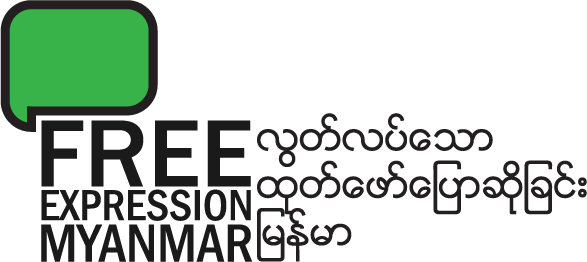The Telecommunications Law was created to regulate previously blocked networks and services but keeps many undemocratic rules with a non-independent government regulator, allowing communications to be closely monitored and users to be criminalised for what they say online. The Telecommunications Law includes illegitimate criminal punishments for freedom of expression which are disproportionate and also confusing as they duplicate the Penal Code where criminal punishments should all be put.
Summary of recommendations
The Telecommunications Law needs amending to make the regulator independent from the government and to remove all criminal punishments.
Detailed issues
Click each section to read more:
[bg_collapse view=”button-green” icon=”arrow” expand_text=”Article 4 – Objectives” collapse_text=”Article 4 – Objectives” ]Article 4 says the objectives of the Telecommunications Law are to create good and competitive telecommunications networks that are accessible for the whole country. Article 4 also says that the Telecommunications Law supervises telecommunications services to ensure the stability and security of the country.
International standards
Telecommunications networks and services such as phone lines, internet connections, Facebook, websites, and emails are very important for debate, learning and development. International standards say that these networks and services are therefore important for human rights such as freedom of expression and privacy. However, Article 4 does not include any safeguards to protect either freedom of expression or privacy.
Recommendations
Add protection of freedom of expression and privacy to the list of objectives in Article 4.[/bg_collapse]
[bg_collapse view=”button-green” icon=”arrow” expand_text=”Articles 5-8 – Licencing” collapse_text=”Articles 5-8 – Licencing” ]Articles 5-8 say that telecommunications companies need licences, and that licencing rules, policies, proceedures and decisions are made by the Department of Posts and Telecommunications in the Ministry of Communications and Information Technology. There is no list of what policies will be made or how they will be made.
International standards
Any telecommunications or media regulator must be independent from government control but the Department of Posts and Telecommunications is part of the Ministry of Communications and Information Technology. This means that the government is in direct control of making telecommunications rules and giving out licences. International standards say that a telecommunications law should clearly define an independent regulator staffed by experienced members that are representative of society and appointed through an open and democratic process. International standards also say that telecommunications laws should clearly say the prinicples for giving licences, as well as say regulators should give clear reasons why licences have been given or not given, and give an option of appealing to a court.
Recommendations
Amend Articles 5-8 to guarantee that the Department of Posts and Telecommunications is independent of government control, and create an open and democratic process for choosing members. Amend Article 6 to say the licencing process, including licencing principles, eligibility, basic procedures, assessment criteria, publication of decisions, and a right to appeal.[/bg_collapse]
[bg_collapse view=”button-green” icon=”arrow” expand_text=”Articles 18, 40, 75-77 – National security” collapse_text=”Articles 18, 40, 75-77 – National security” ]Articles 18, 40, 75-77 say how the government can monitor and stop telecommunications networks and services. Article 18 says that a telecommunications licence holder must take steps to keep the country secure. Article 40 says that the regulator can question licence holders, enter their offices and inspect their equipment in order to access unspecified information. Articles 75-76 say that the government may ask either ministry officials or unspecified organisations to access and inspect information or communications held by licence holders and that may harm security, law and peace. Article 77 says that the government can order a licence holder to stop a telecommunications network or service “for the benefit of the people”. None of the articles define security, peace or what is the benefit of the people. There are no safeguards for wrongdoing or public interest.
International standards
Information and communications carried by telecommunications networks and services are often private and accessing them without the owner’s permission undermines their freedom of expression. International standards say that governments can limit freedom of expression and privacy if there is a clear threat to national security. However threats need to be against the existence of the country and its borders, not just threats to law and order. Freedom of expression can only be limited it there is a clear intent to harm national security and that national security will likely be harmed as a result. Articles 18, 40 and 75-77 are unacceptable under international standards because they do not define national security, they are disproportionate in what they allow the government to do, and they ignore due process as unknown people can access any information or communications without a court warrant. Stopping or shutting down a telecommunications network or service in Article 77 is disproportionate and never acceptable under international standards.
Recommendations
Repeal Articles 18, 40, 75-77 and add an article that allows searches and seizures only with a court warrant, and that properly defines national security.[/bg_collapse]
[bg_collapse view=”button-green” icon=”arrow” expand_text=”Article 66(d), 68(a) – Content regulation” collapse_text=”Article 66(d), 68(a) – Content regulation” ]Article 66(d) criminalises seven acts online with a three-year prison term including defaming or disturbing somebody using a telecommunications network. Article 68(a) criminalises maliciously communicating false information[ii]. There are no definitions of any of these acts in Articles 66(d) and 68(a).
International standards
Defamation should not be criminal. International standards say that criminal punishment is too severe to protect someone’s reputation and should be replaced with civil laws (like the Maldives and Sri Lanka). Criminal defamation laws are usually used by powerful people to exploit the power of the state to silence legitimate criticism. Communicating false information maliciously should not be criminal either. International standards say that such laws are usually used by governments to silence dissenting opinions, and often punish sarcastic, satirical, hyperbolic or comical jokes.
Recommendation
Repeal Articles 66(d) and 68(a) and adopt a new civil defamation law, decriminalising all forms of defamation.[/bg_collapse]
မကြာမှီလာမည်!
